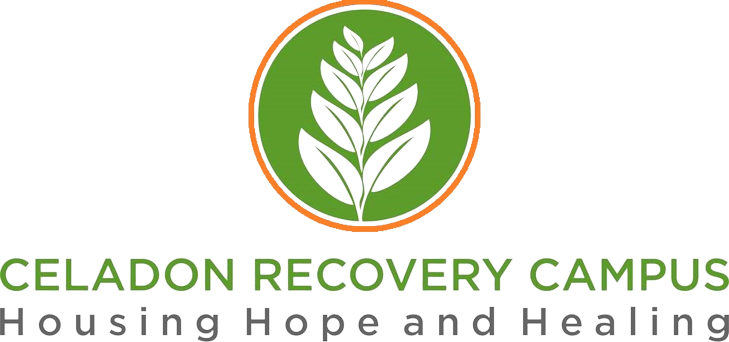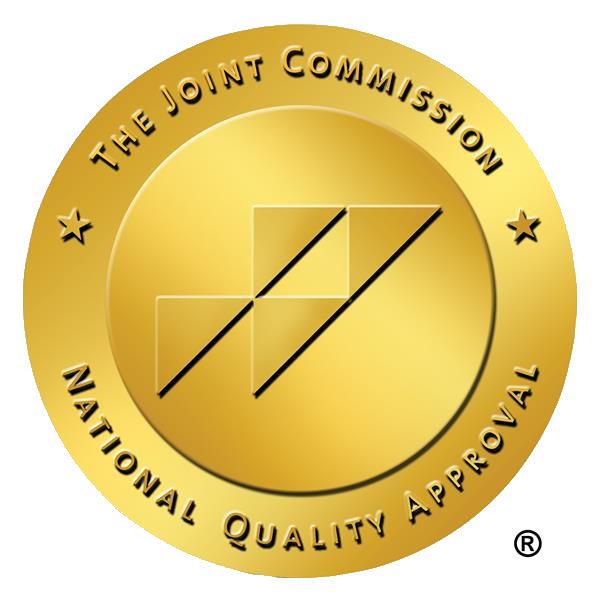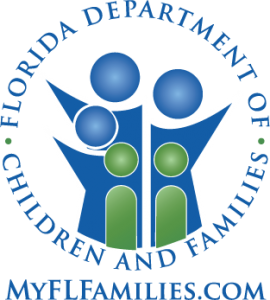Recovery for Veterans: Addressing Substance Abuse and PTSD
In the wake of serving their nation, many veterans face a new battle: the struggle with substance use disorder (SUD) and post-traumatic stress disorder (PTSD). These challenges are often intertwined, deeply affecting the mental health and well-being of those who have experienced the rigors of military service. Celadon Recovery, committed to providing comprehensive mental health treatment, shines a beacon of hope for veterans grappling with these issues. This article delves into the nature of substance abuse and PTSD among veterans, explores treatment options, and underscores the importance of specialized care in their journey to recovery.
Understanding Substance Abuse and PTSD in Veterans
The prevalence of substance abuse and PTSD among veterans is alarming, yet understandable when considering the traumatic events they may have encountered. Service members often witness or experience life-threatening situations, especially those deployed in conflict areas like Afghanistan and Iraq. The U.S. Department of Veterans Affairs (VA) recognizes these issues as significant health care concerns.
Substance abuse, encompassing alcohol use and drug abuse, frequently emerges as a coping mechanism for veterans trying to manage the overwhelming symptoms of PTSD. These symptoms may include flashbacks, chronic pain, severe anxiety, and depression. The use of substances as a form of self-medication, however, often exacerbates the problem, leading to a cycle of dependence and worsening mental health disorders.
Challenges Faced by Veterans
Transitioning from active duty to civilian life poses unique challenges for military veterans. Many struggle with adapting to a life that may seem foreign after their structured and intense military experiences. The prevalence of SUD and PTSD symptoms—such as flashbacks, anxiety, and depression—can complicate this transition.
Veterans with a history of traumatic events are at a higher risk of developing co-occurring disorders. The dual burden of battling addiction while coping with PTSD can be overwhelming. It is not uncommon for veterans to experience opioid addiction, alcohol dependence, or engage in binge drinking as a misguided form of relief from their mental health issues.
Treatment Options and Programs
The journey to recovery for veterans facing substance abuse and PTSD is multifaceted, encompassing a range of treatment programs. Celadon Recovery, at the forefront of providing comprehensive care, offers a variety of options tailored to the unique needs of veterans. These include addiction treatment programs that address drug use and alcohol abuse, as well as PTSD treatment that deals directly with the traumas of military service.
Key to these treatment programs is the integration of therapies like cognitive behavioral therapy (CBT), which helps individuals reframe negative thought patterns, and cognitive processing therapy, a specific type of CBT that deals with traumatic events. Additionally, psychotherapy sessions, both individual and group, provide a platform for veterans to process their experiences and emotions in a safe and supportive environment.
The Role of Support Systems
In the realm of recovery, the importance of robust support systems cannot be overstressed. Family members play a crucial role, offering emotional support and understanding. Additionally, peer support groups, consisting of fellow veterans who have shared similar experiences, provide a sense of camaraderie and mutual understanding that is invaluable.
Celadon Recovery emphasizes the importance of incorporating behavioral health strategies, including relapse prevention techniques, into their treatment plans. These strategies are crucial in helping veterans navigate the challenges of recovery, ensuring long-term success and stability.
Transitioning to Civilian Life
Adapting to civilian life post-military service is a significant challenge for many veterans, especially those battling SUD and PTSD. The drastic change in lifestyle and the lack of a structured environment like that in the military can be disorienting and stressful. This transition is where comprehensive mental health treatment plays a pivotal role.
The transition from active duty to civilian life is a pivotal phase for many veterans. This transition can be laden with challenges such as adapting to a new routine, finding a new purpose, and dealing with chronic pain or other health problems stemming from military service. Celadon Recovery’s programs address these specific needs, aiding veterans in navigating this crucial phase of their lives. Programs at Celadon Recovery are designed to not only address substance misuse and mental health issues but also to equip veterans with the skills and resources needed to adapt to civilian life. This holistic approach fosters a smoother transition and helps in mitigating the risks of chronic pain, mental illness, and substance relapse.
Celadon Recovery’s Approach
At Celadon Recovery, the approach to treating veterans is distinguished by its empathy, expertise, and understanding of military culture. Recognizing the unique challenges faced by military veterans, the center offers specialized treatment services that cater to their specific needs.
From substance abuse treatment, inpatient programs to outpatient services, Celadon Recovery provides a continuum of care that addresses the dual diagnosis of substance abuse and mental health disorders. The treatment plans are customized, considering the individual experiences and challenges of each veteran, ensuring that each step of the recovery journey is supported and effective.
Addressing Co-occurring Disorders in Veterans
Many veterans face the challenge of co-occurring disorders, where substance abuse issues like alcohol use disorder and drug abuse, including opioid misuse, exist alongside PTSD. This complex interplay demands a comprehensive approach in treatment. Celadon Recovery’s treatment programs are adept at addressing these intertwined issues, offering therapies like prolonged exposure therapy and dual diagnosis treatment, which are essential in managing these co-occurring disorders effectively.
The approach to treating co-occurring disorders in veterans is not just about addressing the symptoms but also about understanding the underlying causes. For many veterans, experiences from their service time, such as exposure to traumatic events, can trigger or exacerbate these conditions. Clinicians at Celadon Recovery are trained to identify and treat the root causes of these disorders, using evidence-based practices that are tailored to the unique needs of each veteran.
Comprehensive care for co-occurring disorders also involves addressing the social and emotional aspects of recovery. This means providing support groups, national center, family therapy sessions, and educational programs that help veterans and their loved ones understand and manage the complexities of these conditions. By fostering a supportive community, Celadon Recovery ensures that veterans are not alone in their journey towards healing and recovery.
The Impact of Military Culture on Mental Health
Understanding the impact of military culture on a veteran’s mental health is crucial. The values and experiences ingrained during military service, whether during times of peace or war, significantly influence a veteran’s perspective on mental health and seeking treatment. This understanding is critical in tailoring treatment programs at Celadon Recovery, ensuring they resonate with the unique mindset and experiences of military personnel, including those who have served in Vietnam, Iraq, and Afghanistan.
Military culture often emphasizes strength, resilience, and self-reliance, traits that are invaluable during service but war veterans can sometimes hinder veterans from seeking help for mental health issues. Celadon Recovery’s programs are designed to break down these barriers, creating an environment where it’s okay to seek help and showing that doing so is a sign of strength, not weakness. This approach helps veterans to reconcile their military identity with the need for mental health care.
The Role of VA Health Care and Other Health Services
The U.S. Department of Veterans Affairs (VA) plays a significant role in providing health care services to veterans, including mental health treatment and addiction treatment. However, additional resources like Celadon Recovery supplement these services, offering more personalized care and specialized programs that may not be available through standard VA health care channels.
While the VA offers a wide range of services, the individualized attention and specialized programs at Celadon Recovery fill the gaps that some veterans experience in the VA system. For instance, Celadon Recovery’s holistic approach includes alternative therapies, such as art therapy and equine therapy, which might not be readily available in all VA health centers. This diversity of treatment options can be crucial in finding the right therapeutic match for each veteran.
Collaboration between VA health care and private facilities like Celadon Recovery also allows for a more integrated approach to veteran care. By working in tandem, these organizations ensure that veterans receive comprehensive, continuous care, bridging the gap between different treatment modalities and providers. This collaborative approach maximizes the potential for successful outcomes in the treatment of substance abuse and mental health issues among veterans.
Importance of Early Intervention and Relapse Prevention
Early intervention in cases of substance misuse and the onset of PTSD symptoms can significantly alter the trajectory of a veteran’s recovery journey. Relapse prevention is another critical component, involving strategies to prevent binge drinking and drug use relapse. Clinicians at Celadon Recovery focus on these aspects, ensuring that veterans receive the care they need at the right time.
The effectiveness of early intervention cannot be overstated. By identifying and addressing substance abuse and mental health issues as soon as they appear, clinicians can prevent these problems from escalating. This approach is especially effective in the veteran population, where early signs of distress can be subtle and often overlooked. Regular assessments and screenings are part of Celadon Recovery’s commitment to early intervention.
Relapse prevention is a key focus, with programs designed to equip veterans with the tools and strategies needed to maintain their sobriety and mental health. This includes teaching coping mechanisms, stress management techniques, and helping veterans build a supportive network. Understanding triggers and developing strategies to manage them is a critical part of this process, enabling veterans to sustain their progress and lead fulfilling lives post-treatment.
Support for Family Members and Loved Ones
The role of family members in a veteran’s recovery process is invaluable. Their understanding, support, and involvement can make a significant difference. Treatment plans often include components that involve family members, providing them with the tools to support their loved ones effectively.
Family therapy sessions are an integral part of treatment at Celadon Recovery. These sessions help family members understand the challenges faced by veterans and teach them how to create a supportive home environment. This collaborative approach not only aids the veteran’s recovery but also strengthens family bonds, fostering a supportive network that extends beyond the treatment period.
Recognizing the emotional toll that a veteran’s struggles can have on loved ones, Celadon Recovery also provides support and counseling for family members. This holistic approach ensures that the family unit is strengthened, and each member is equipped to handle the challenges that come with the recovery process. By supporting the family, Celadon Recovery ensures a stable and nurturing environment for the veteran’s continued recovery.
Conclusion
Recovery from substance abuse and PTSD is a journey that requires patience, understanding, and specialized care. For veterans, this path is often marked by unique challenges rooted in their military experiences and the nature of their service. Celadon Recovery, with its comprehensive treatment programs and empathetic approach, stands as a pillar of support for veterans. It is a place where healing begins, and a new chapter of life, free from the shackles of substance misuse and the shadows of PTSD, is written.+
For veterans grappling with substance abuse and PTSD, the path to recovery, though challenging, is filled with hope. It requires a dedicated approach that addresses the complex interplay of mental health disorders, past traumatic experiences, and the unique aspects of military culture. Celadon Recovery stands as a testament to the possibilities of recovery, offering comprehensive, compassionate, and specialized care.
Veterans and their loved ones seeking support and treatment for substance abuse and mental health issues are encouraged to reach out. The journey to healing and a fulfilling life post-service is within reach, with the right care and support.










